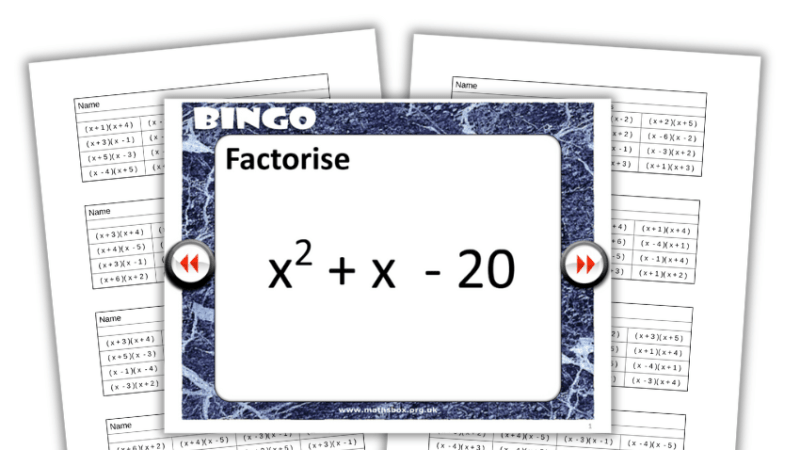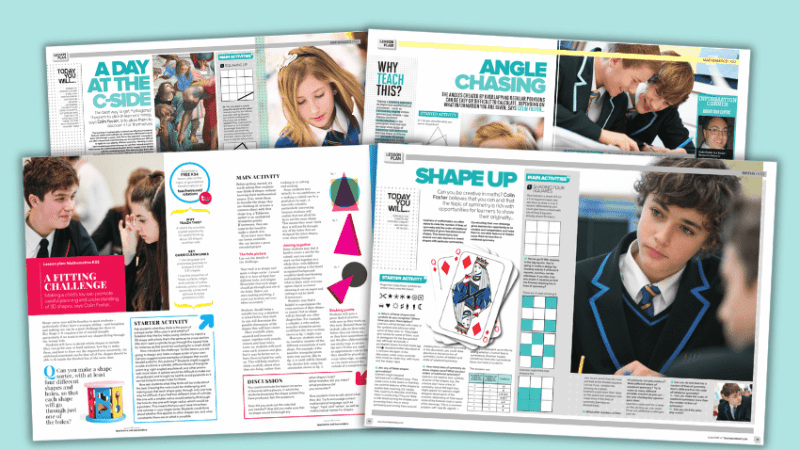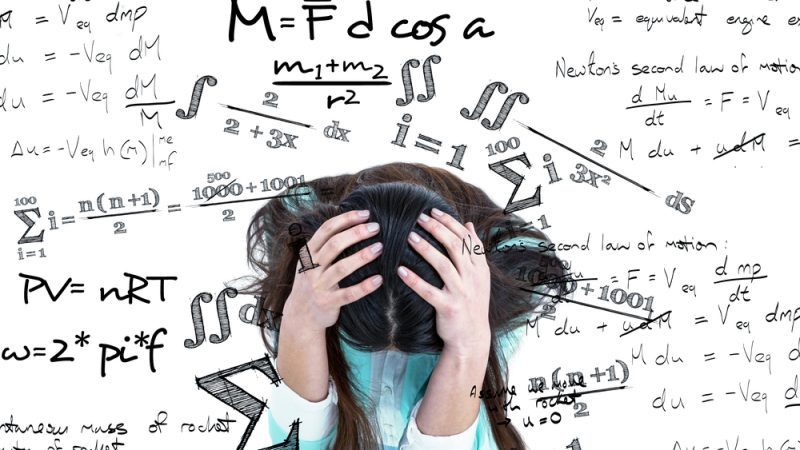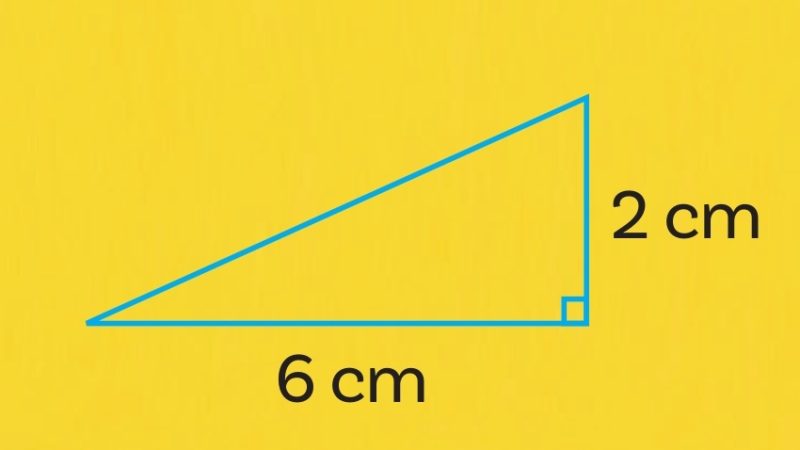GCSE maths preparation and revision – Why the ‘Reflect, Expect, Check, Explain’ framework really works
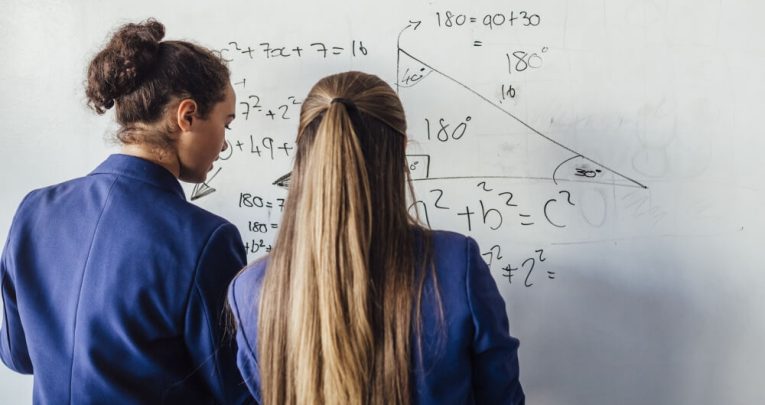
Past papers will only get students so far with their GCSE preparation, says Craig Barton – if they can ‘think mathematically,’ the content’s far more likely to stick…

- by Craig Barton
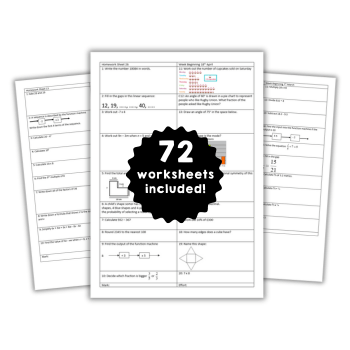
The maths community has seen some big debates over the best ways of getting students to ‘think mathematically’, so that they can answer those tricky GCSE questions that might cause them to come unstuck.
A mistake I made for many years was thinking that the best way to get students good at answering such questions was to keep giving them loads of past GCSE papers.
But what I gradually realised was that the students tended to just answer only the questions they were good at and leave the ones they struggled with.
I would then guide them through the trickier areas of those exams, but little of what I taught ever seemed to stick.
It was only during my 12th year as a teacher that I concluded – it seems so obvious now – that if the foundations, fluency and basics of an idea, concept or method aren’t there, you can’t do anything complex with it.
I came to see that practice was the key to unlocking all the more complex skills we want our kids to possess, such as the abilities to conjecture, hypothesise and problem solve.
Careful sequencing
The question then becomes, ‘What does that practice look like?’ Every teacher has to contend with the issue that some students will always require more practice than others, that some students grasp ideas quicker than their peers and that some are a little slower.
Giving a class of 25 students a random set of questions is therefore inevitably going to involve some degree of compromise. So how can we engineer a form of practice for all of my kids?
After attempting to read everything I could on variation theory, I came across the idea of carefully sequencing the examples we give to students, while crucially keeping key aspects constant, and changing just one or two elements between one set question and the next.
Previously, everything in my practice would be constantly changing. Q1 might task them with adding a couple of fractions together. Q2 would then typically involve them being asked to add a completely different pair of fractions.
With such disconnected questions, once my students worked out the answers that would be the end of it. No further thinking would be done.
Reflect, Expect, Check, Explain
However, we can address this by drawing on a key aspect of variation theory and carefully change the numbers involved. Take those fractions – in Q1, students add them and work out the answer. Then in Q2, we change one element – maybe the numerator or denominator of one of the fractions The aim is get students thinking, ‘Hang on, these two questions aren’t completely unrelated – there’s something going on here.’
This led me to developing a framework I call ‘reflect, expect, check explain’. What’s the same and what’s different about this question? (Reflect.) What do I think will happen to the answer? (Expect.) Am I right? (Check.) If not, can I figure out why? If yes, can I explain why to someone else? (Explain).
Some will spot the relationships between the practice questions before they work out the answers. Others will be able to explain the relationships, whether they’ve worked out the answer out or not.
Some students won’t understand those relationships at that time. But every student will benefit from doing the practice; every student will have this opportunity to think that bit deeper about what they’re doing.
Intelligent practice
A key point I often emphasise when working on these sequences with other teachers is how it contrasts with the kind of practice I used to give.
The questions I previously set would start off being fairly easy before getting progressively harder, but also more interesting.
The interesting maths would tend to appear from Q12 onwards, which does make some sense, since you’ve got to have mastered the basics before you getting on to more complex tasks.
The problem with that, of course, is that it places all the boring, routine maths at the start. Some kids will never even reach the interesting bit. Maths then becomes simply a case of learning different methods for answering certain sets of questions, prompting some kids to feel disconnected and turned off from maths.
My question sequences can sometimes also get gradually harder and keep the most interesting material for the end, but I’m also challenging my students to ‘reflect, expect, check, explain’ from the very beginning.
Before they answer a question, I’m getting them to think, ‘What’s the same and what’s different from the previous question compared to this one? Can you expect to see anything specific in the answer once you work it out?
Once students have their answer, it’s important that they again pause. Can they explain the answer they’ve reached? If it’s not what they expected to happen, can they break down the reasons for their surprise?
Conversely, if the answer is exactly what they expected to happen, how would they explain that to somebody who doesn’t yet understand it?
This last point is important. With disconnected practice, once children get a question right their thinking stops. Using intelligent practice, even correct answers that line up perfectly with students’ expectations will still give them something to think about. The ‘reflect, expect, check, explain’ framework gives all students a rich experience, even after they’ve worked out the answers, which is quite powerful.
Opportunities for all
If you were to adopt this approach with a typical class, something interesting will happen if you hand out the questions and don’t do anything.
Some kids will really thrive, spotting the connections between questions and querying them. Yet they’re in a minority, and tend to already be fairly high achieving. They may even have been thinking mathematically for years.
The majority of kids will be minded to work out the question they’ve been set, get the answer and move on. With this framework, I want as many students as possible to have opportunities to think mathematically – by spotting relationships, hypothesising, discussing and explaining concepts to each other.
Growing pains
Here are some things I used to waste valuable maths lesson time on doing in the build-up to GCSEs…
1 | Teach past papers every lesson
What tended to happen was that the kids would frequently get the same questions right and the same questions wrong. I’m not convinced they learnt very much from answering these five- or six-mark questions when their actual knowledge of the relevant mathematical foundations wasn’t secure.
2 | Let students choose
I’d allow students to focus on whichever topic they wished, based on what they thought they needed to work on. I’d then walk round like a tutor, but this approach assumes kids are the best judges of their strengths and weaknesses. I once asked a child why they were practicing working out the mean. “Because I’m good at this,” they said.
3 | Let kids work together when revising
This would involve handing out a past paper and getting kids to work in pairs on answering as much of it as they could. It produced an illusion of collective wisdom, where two kids would be working together on a problem, leaving both them and myself without any clue as to whether they could have reached the correct answer on their own, working independently.
4 | Let kids teach the lesson
I’d assign a topic to each child and they’d do a 10- to 15-minute presentation on it to the rest of the class. However, you’ve got to consider who’s in the best place to teach those topics. Is it the teacher, who will have planned their teaching in advance and perhaps taught those topics 15 or 20 times before? Or is it the kids, who will be relative novices, perhaps giving more thought to the fonts and animations in their PowerPoint presentations and feeling nervous?
Craig Barton is a maths teacher and the creator of several online maths resources, including diagnosticquestions.com, variationtheory.com and ssddproblems.com; his latest book, Reflect, Expect, Check, Explain, is available now (John Catt, £19).
For more details, visit mrbartonmaths.com or follow @mrbartonmaths.
Browse our list of GCSE maths games.





